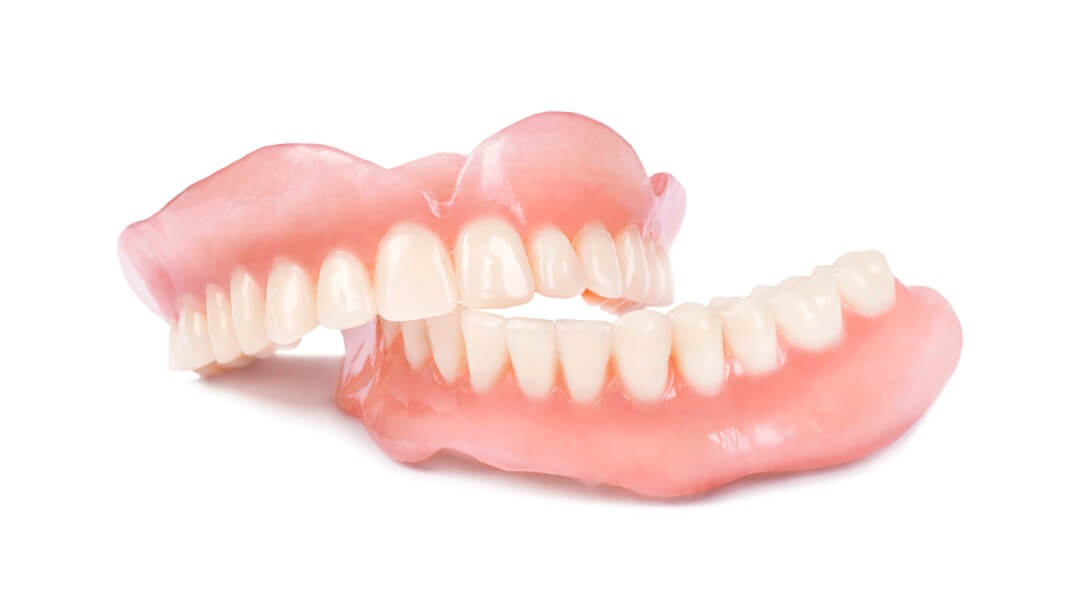When you lose some or all your teeth, dentures are a traditional treatment option that helps give you back function and a beautiful smile. While these replace your natural teeth, both cosmetically and with improved function, adjusting to them can take time and require changes. At Soundview Family Dental, we understand that the idea of dentures can be intimidating, but our restorative dentistry team is here to help you understand what to expect and learn how to adjust to them.
Key Takeaways
- Dentures are removable appliances that replace missing teeth, with full or partial options.
- Advantages include improved functionality, facial structure support, and simple care.
- Disadvantages can include multiple dental appointments, loose or poor fit, uncomfortable adhesive, changes to eating, and limited lifespan.
- Expectations after getting dentures include sore spots and gum irritation, excess saliva, changes in speech, problems eating, and possible discomfort.
- Proper care and regular visits to the dentist can help address any issues and ensure successful adjustment to dentures.
What are dentures?
Dentures are a removable restorative appliance designed to replace missing teeth. You can either have full or partial ones. You receive full dentures when you are missing all your lower or upper teeth. Partial dentures work to fill in gaps where multiple teeth are missing but still have healthy teeth that can be used to anchor them into place.
There are two types of complete dentures. With conventional, your dentist removes all your remaining teeth and allows the gums and tissue to heal before creating a denture. Once healed, a mold of your arch is made, as is the denture. Because your gums shrink after tooth removal, this method allows your dentist to create one that fits your gum changes right away.
In contrast, immediate dentures are made before your teeth are removed and placed in your mouth immediately after extraction. This method allows you to have no time without teeth. However, as your gums shrink and heal, your dentures will need adjustment in order to fit the changes.
Advantages
Full or partial dentures offer many advantages. In addition to improved functionality and an improved smile, these advantages include:
- Facial structure support – When you lose your teeth, your gums shrink, lose bone tissue, and experience facial changes, such as collapsing cheeks. Dentures help to support your facial structure and keep cheeks from sinking inward.
- Protect remaining teeth – Partial dentures help reduce the force and shift on your remaining teeth.
- Simple care and maintenance – Because you can remove your dentures, they are easy to clean overnight in a soaking solution.
Disadvantages
While they offer a variety of different benefits, there are some disadvantages to these removable appliances. These disadvantages can include:
- Multiple dental appointments – Getting dentures requires multiple dental visits in order to remove teeth – fitting and adjusting as needed.
- Loose or poor fit – As your body changes, you may find them slipping when you eat or talk or not fitting as they used to. This can cause embarrassment and requires dental visits to adjust your fit.
- Uncomfortable adhesive – To keep them secure, you may need to use a dental adhesive. These can be unpleasant and taste bad.
- Changes to eating – Many people with dentures report changes to how their food tastes.
- They do not last forever – While your dentures are made to withstand pressure and the forces of eating, they can still break and wear down over time, requiring replacement.

Things you should expect
Whether you choose conventional or immediate denture placement or have full or partial dentures, it will take time to adjust. Once your dentures are put in place, they may feel strange. It will take time for your mouth, jaw, and gums to become used to the appliance. In addition to feeling different, you are likely to experience additional changes and complications as your body adjusts to something new.
1. Sore spots and gum irritation
New dentures are a foreign appliance in the body, and it takes time for your gum tissue to adjust to this. Sore spots on the gums, and even the inner cheeks, are common with new dentures but should resolve within a few days to weeks. If sore spots persist, you may have a problem with the way your denture fits and should speak with your dentist about possible adjustments.
Sore spots can also develop when these are not cleaned correctly. Bacteria held against the gum tissue by the denture can result in infection, inflammation, and sore spots on the gums. Follow care instructions provided to avoid this.
2. Excess saliva
When you first get dentures, your body views them as a foreign object. Because of this, you may experience hypersalivation, or increased saliva, as the body tries to flush out the foreign object. This is completely normal and, as your body adjusts to the denture, your saliva production will eventually return to normal.
3. Changes in speech
With new dentures, you may experience changes in your speech. However, some of these changes may only sound different to you. When you speak, your ears hear your speech through vibrations in the bones of your jaw and skull. The added denture changes these vibrations and, in turn, changing the way you hear yourself. With new dentures, you may also find certain words or sounds are difficult at first. Learning to speak with your new dentures can take a little time, but reading aloud to practice can help. If you experience a clicking or snapping sound when you speak, you may need to see your dentist for an adjustment, as the denture may not be fitting correctly.
4. Problems eating
While dentures are designed to make eating easier, adjusting to how you bite and chew can take time. You must retrain your muscles and, in some cases, modify your eating habits. Starting with soft foods while you adjust is advised. In addition, your new dentures can make it hard to sense hot temperatures. Before eating, check the temperature of foods with your lips first.
5. Discomfort
Pain or discomfort is common with new dentures. If you have immediate dentures, chances are you will experience pain and discomfort due to swelling and healing tissue. As your gums heal, your pain should go away. As mentioned above, new or improperly cleaned dentures can contribute to sores on the gums that can cause pain and discomfort.
Adapting to new dentures
New dentures may feel strange and uncomfortable in your mouth as your body adjusts to something new. While it may take a few weeks to completely adjust to your new dental appliance, there are a few tips that can help make the adjustment a little easier.
Eating
If you have been without teeth for a while, the idea of dentures and their ability to help you chew is exciting. However, this is not the time to order that big steak and dig in. Learning to chew with new dentures can take time, and it is best to start with soft foods, such as yogurt, applesauce, and mashed potatoes while you learn how to eat and chew with your new dentures. Avoid hard foods, foods you must bite into and sticky foods at first. Cut your food into small portions that do not require a lot of chewing and be sure to chew with both sides of your mouth to learn how the new dentures function.
Speaking
Speaking with dentures can be difficult at first. You may experience problems with “s” and “f” sounds. If you have an upper denture covering your palate, your tongue may need time to adjust to the change in mouth space it has to form sounds. Changes in speech can make people very uncomfortable at first, so practicing at home or with a close friend can be beneficial. Consider reading a book aloud can help you practice with your new dentures.
Dental visits
While you may no longer have natural teeth, dental visits are still an important part of your denture care. They may need adjustments as your gum tissue heals. Without these adjustments, you can experience difficulty eating and talking.
How long does it take to get used to new dentures?
How long it takes to adjust is different for everyone. While some people may quickly adjust, others may struggle for more than a month. This is especially true when the new denture requires multiple adjustments over the initial period. In most cases, your body should completely adjust within a month, but don’t be surprised if it takes a little longer.
At Soundview Family Dental, we understand the importance of a beautiful smile and we know how new dentures can be life-changing for many of our patients. But we also know that many people have questions and trouble adjusting to their new dentures. Our caring and experienced staff are here to help answer your questions and concerns. For more information or schedule an appointment, contact us online or call the office at (425) 563-6360 today.


